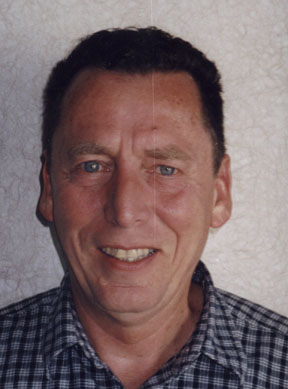

Creating a Transpersonal Career
Henry Reed, Atlantic University
The story of Edgar Cayce tells us that there is guidance within us. It is fitting, then, that at Atlantic University, students not only learn to read the important literature, but they learn to meditate. In class they not only discuss their reading material, but they also pray for one another and learn to recognize one another within themselves. Their culminating work is just as often a project serving others as it is compiling ideas from books.
In today's climate of materialism, the value of a graduate degree is often expressed in terms of return on the monetary investment made. What can you do with an Atlantic University degree? When asked this question, former Atlantic University president Dr. Fred Davidson answered, "you can influence people!" Indeed, during his tenure as president during the 1970's, Atlantic University inaugurated the publication, Sundance: The Community Dream Journal. Its contents demonstrated that unknown to the psychologists and psychoanalysts of the day, there was a large population of laypeople (mainly A.R.E. members) who were making constructive use of dreams without the aid of professional therapists ("virtual" copies of the first two issues of Sundance are available at http://www.creativespirit.net/sundancedreamjournal/ ).
A few years later, the founding of the Association for the Study of Dreams, an international professional organization, credited in their published history of the "dreamwork movement" and the founding of A.S.D., the Sundance journals as a key instigator. People were influenced!
One of the learning events that occur during a student's progress through Atlantic University is the expansion of the boundaries of thought and imagination. For example, it is a cliche to contrast spirituality with science. Yet our students learn what these two processes in human experience have in common in their shared attempt to learn the truth and avoid self-deception. In one learning sequence, for example, students write about what they have actually experienced that suggests that there are spiritual realities beyond the visible material world. In the second step of this process, students write about what these experiences have led them to imagine about the true nature of reality and the human being.
For the final step in this process, students write about how their thoughts concerning spiritual realities have affected how they live their lives, and how resulting experiences may have modified their original ideas about the nature of spiritual reality and their role in it. Through this process, Edgar Cayce's basic premise concerning spiritual development, "in the application comes the awareness," becomes essentially the same process as is used in the scientific method: observing a phenomenon, developing a theory about it, creating experiments to test and modify the theory (examples of this three part sequence are posted at http://www.creativespirit.net/learners/spirituality/index.htm).
Given this more broadened understanding of spirituality enables a student to talk with anyone, regardless of persuasion, by recognizing the authenticity of speaking from personal experience, independent of the theoretical interpretation of that experience. It is more often in assertions of theory, rather than in the sharing of raw experiences, that we find ourselves wishing we were surrounded only by "like minded" people. Atlantic University students have developed the consciousness and skill set that allows them to speak to anyone.
That's all well and good, but what about creating a career from an Atlantic University degree? To respond to that question in the spirit of the work, we offered a course entitled, "Creating a Transpersonal Career." To emphasize Cayce's emphasis on inner guidance -- and to honor the fact that he did not have a government-issued license to help people and make a difference in this world -- we invited guest speakers who had, at most, an undergraduate degree and one with only a high school diploma. Among these exemplars of people with successful transpersonal careers, there was a yoga instructor, a motivational speaker, a creativity consultant, an expert in self-hypnosis, a meditation retreat operator, and a workshop conductor and all had authored at least one book. Our students were able to interview these exemplars and learn what it takes to be successful. Here were some of the themes common to all these role models: A confidence that comes from personal experience, being very well read in the field, an ability to communicate to the public the benefits of their services, a total commitment to serving others, an excellent word of mouth referral system, and a passion that was spiritually motivated. Our students then went into their own community in search of local role models to determine if our specially selected exemplars were unique or were examples of a common pattern for success. The final lesson in this learning sequence was to understand the true spiritual meaning of "vocation," of responding to a call to serve, of trusting an inner source of inspiration that receives its accreditation by proving its value by its fruits. We concluded that the answer to what you can do with an Atlantic University degree is "you can do what you are called to do, only better!"